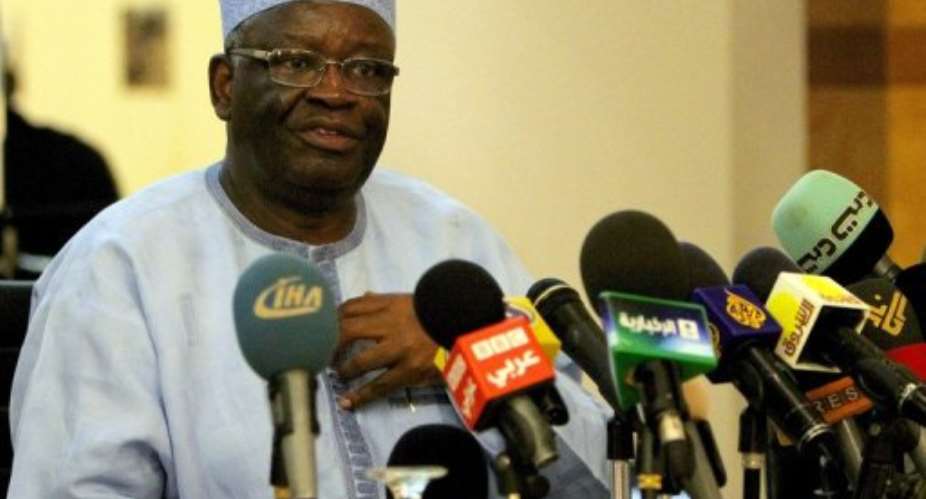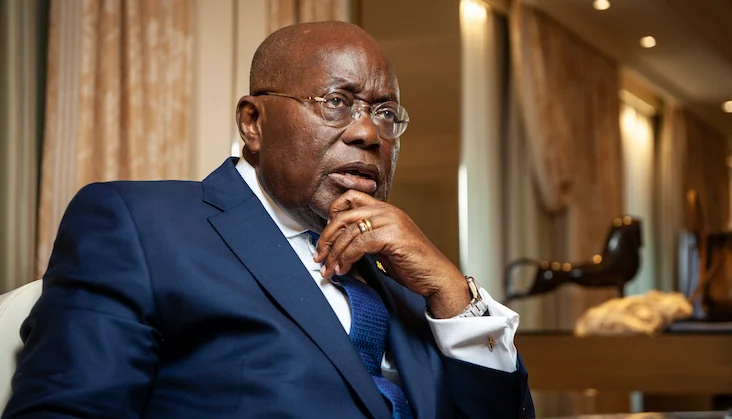KHARTOUM, Sudan (AFP) - A rebel movement that was once the most powerful in Sudan's war-ravaged Darfur region appears to have split into factions since the death of its leader last month, the head of the peacekeeping mission to the region said on Wednesday.
Darfur plunged into uncertainty in December when government forces announced they had killed Khalil Ibrahim, who led the Justice and Equality Movement (JEM), a group that said it was fighting for reform of an Arab-dominated political system.
Until Ibrahim's successor is named, it remains unclear whether more groups can sign up to a Darfur peace deal inked in Qatar last year, Ibrahim Gambari, who heads the joint African Union/United Nations UNAMID mission, told AFP in an interview.
"We would have preferred a JEM that was intact, as a negotiating partner," Gambari said.
"Just before his death... there was a faction that already broke away," he said.
"Then there are seven field commanders who also are believed to have defected from JEM who are currently in Juba," the capital of South Sudan.
Another collection of supposed defectors are known as the "Khartoum Group", he said.
"It looks like" JEM has factionalised, Gambari added, but much depends on the outcome of the rebel group's leadership meeting expected to be held in Juba or the Ugandan capital Kampala.
"We'll have to wait and see what leadership emerges, how much support such a leadership has, and then we'll take it from there," said the Nigerian mission chief with more than 17,000 troops and about 5,000 police under his command.
JEM said last week that it was "still active" and still able to do what it wanted, despite the loss of Ibrahim.
Darfur's rebel groups rose up against the Arab-dominated Khartoum government in 2003.
In 2008, the JEM marched dramatically towards Khartoum reaching as far Omdurman, just across the Nile from the presidential palace, before being pushed back.
The United Nations estimates at least 300,000 people have died because of the conflict, with about 300 killed in deadly armed clashes last year.
The government puts the total number of dead at 10,000.
In July, Khartoum signed the Doha Document for Peace in Darfur with the Liberation and Justice Movement, an alliance of rebel splinter factions.
JEM did not join, saying key issues including power and wealth sharing, human rights violations, and the almost two million displaced had not been resolved in the Doha pact.
Two factions of Darfur's Sudan Liberation Army also rejected it.
In November the holdouts formed a "revolutionary front" to overthrow the Khartoum government, teaming up with the SPLM-N rebels, based in contested regions bordering newly independent South Sudan.
Sudan had previously accused Chad of supplying and equipping JEM, while Chad in turn alleged Khartoum backed rebel forces working against its regime.
Relations have improved over the past two years and Gambari said a joint border force set up by the two countries "has contributed significantly to enhancing peace in Western Darfur".





 Mahama was a one-term president because he was incompetent and brought untold ha...
Mahama was a one-term president because he was incompetent and brought untold ha...
 Shortage of ‘bentua’ hits Accra Central Market
Shortage of ‘bentua’ hits Accra Central Market
 Blame IMF programme for Cedi's decline —Prof Bokpin
Blame IMF programme for Cedi's decline —Prof Bokpin
 Court denies Kasoa soldier killer bail
Court denies Kasoa soldier killer bail
 All crooked deals are cooked at Jubilee House – Franklin Cudjoe
All crooked deals are cooked at Jubilee House – Franklin Cudjoe
 Don’t be tricked by Mahama’s rebranding move – Richard Ahiagbah to Ghanaians
Don’t be tricked by Mahama’s rebranding move – Richard Ahiagbah to Ghanaians
 Petition against Kissi Agyebeng not surprising – Justice Srem Sai
Petition against Kissi Agyebeng not surprising – Justice Srem Sai
 Akufo-Addo’s handling of petitions against top officials disappointing – Justice...
Akufo-Addo’s handling of petitions against top officials disappointing – Justice...
 Osino: ‘Sleeping’ tipper truck driver runs into building
Osino: ‘Sleeping’ tipper truck driver runs into building
 Ahmed Suale's killers will be brought to justice no matter how long it takes - A...
Ahmed Suale's killers will be brought to justice no matter how long it takes - A...
